Sorry chaps and chapettes, this has to be done. It’s a really interesting topic that quite a lot of people have tiptoed around a number of occasions (and due to my lack of knowledge, I doubt I am any different). So let’s be as blunt as much as we can about this and see how much sexual discrimination has been looming over the sport. Which is why a 25 year-old man like me decided to write about the sexism in snooker. Hmm.
Even back when I started writing about this, I typed “women in snooker” into Google and the very top link happened to be a BBC article: World Snooker: Steve Davis says women will never match top men in the later stages of the World Championships. At that time the next one was on Michaela Tabb settling a sexual discrimination case. So initially, the questions keep coming forward: “Why would a woman play snooker in the first place?” “Are women biologically worse at snooker than men?” “Should women even be allowed to be in a snooker club nowadays?” “Why when female referees keep making so many mistakes is she allowed to still be a referee – is it because she’s a woman? That would never happen to a man!” “Is she the fit one?” Rubbish like that.

Are these conversations brought up on a daily basis? Are they even justified? Is sexism rife in snooker or are we in the right direction to eliminate sexual discrimination? Is there still a lot of work to do?
Sexism in the Professional Game
It’s more than unfortunate that the subject of sexual discrimination had to come round to the very person who shot up the ranks. The same person who not only changed the profile of snooker referees at the time but who also broke barriers for women to participate on the international stage. Michaela Tabb commented that there was a fair amount of hostility of her joining the snooker ranks, though whether it was because she’s a woman or that she was fast-tracked into the system is another mystery. Regardless, she proved everyone wrong and the rest is history.
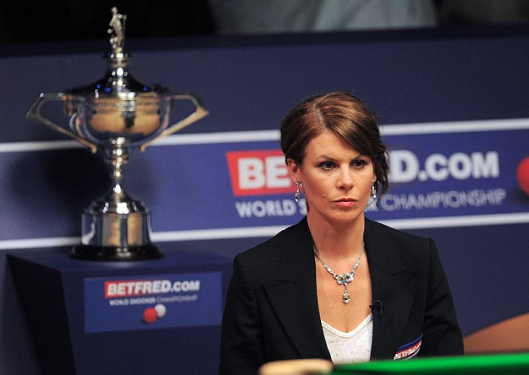
She never got abused when refereeing snooker matches either. The snooker audience is too good for that. Unfortunately, one of the many examples of abuse in the sport occurred during the 2013 World Championship semi-final, where Tabb warned Ronnie O’Sullivan over an alleged obscene gesture with his snooker cue, which Ronnie later admitted. Michaela also said of the incident:
“…but you should see the flack I took on Twitter and Facebook. I have never been so abused by some real die-hard Ronnie supporters that don’t see past the fact. They said I made him miss the next shot- rubbish!” [1]
Unfortunately, the news that shocked everyone was Michaela Tabb leaving the snooker circuit after 14 years in September 2015. It later transpired that it was something more than her wanting a different challenge or any typical reason for leaving any company. The thing that turned the entire debacle sour was a situation over an unpaid bonus that infuriated Tabb that World Snooker claimed it was discretionary [2], apparently because she did not attend the annual awards dinner, among other things. After leaving early from the Australian Goldfields Open and later never to referee in the professional circuit again, Tabb went on to sue for sexual discrimination, unfair dismissal, and breach of contract. She told the inquiry:
“I firmly believe that I have been discriminated against on the basis of my sex. I believe the only logical reason I have been treated differently is because I was a woman.” [3]
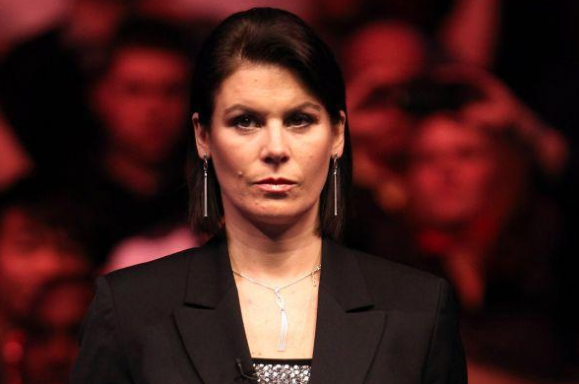
Eventually, both Tabb and World Snooker ‘have come to a confidential accommodation regarding the claims brought by Mrs. McInnes in the Employment Tribunal,‘ [3] in other words, an undisclosed financial settlement.
Of course, there are limited sources to find about the case and what other claims Tabb (née McInnes) could have made. On one hand, World Snooker handled the situation terribly by losing one of the most popular, talented, decorated and respected refs on the circuit and someone who they fast-tracked to encourage women to participate in the sport. This court case could’ve massively harmed the chances of women feeling safe to do so but thankfully we know now, this is not the case. On the other hand, why would World Snooker do such a thing after 14 years? One could argue that Michaela was a referee because of her gender and she benefited from the discrimination.
Then we can look at Reanne Evans’s experiences with sexism during her professional career. One example is commentators talking about the only pots she should worry about are the ones in a kitchen sink [4] and another particular one is below:
“You get it a lot. I was in one tournament, the world under-21s, and there was a New Zealand referee who was refereeing ladies’ matches and saying they shouldn’t be playing. He got kicked out the tournament for it. I complained straight away. He got a ban from his association as well.” [5]
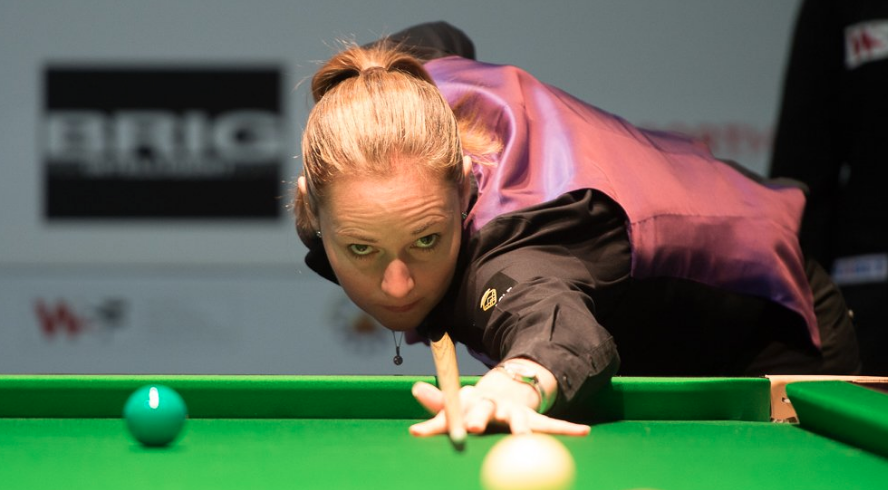
She is one of the of the major voices of the differences in pay between men and women. As we all know, this had suddenly come to light over the past few months in the BBC and all of that but this is not unusual in the snooker world. Back in 2017 for example, the World Championship prize money in women’s snooker it is £12,000. In the Men’s it is £375,000. In the same tournament, making the televised highest break is just two grand short of winning the Women’s World Championship. Considering the highest break in a men’s WC was at one point higher than winning a women’s WC is quite shocking. With the amount of money she earned a couple of years ago, she admitted that she would’ve earned less playing snooker than working at a supermarket. [4] Whether it is because they are women or because their competitions aren’t competitive enough is another story, but as bluntly put over the pay gap issue:
“You’d expect to earn a little bit of a living for being the top sportswoman in your sport. I just find it flabbergasting. I don’t expect to be earning hundreds of thousands of pounds because we don’t play in big tournaments or on TV, and the standard isn’t as good as the men’s, but you shouldn’t be losing money. I’d like to see if the men were in that situation whether they’d all still be playing now. Would they be playing for £450?” [5]
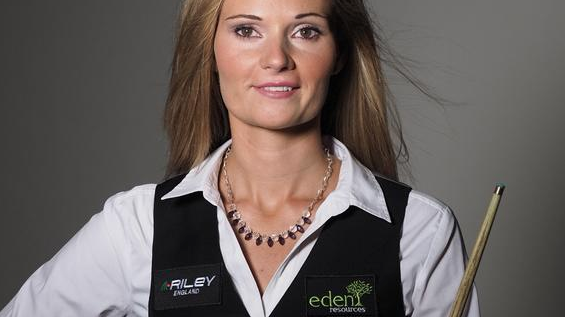
Sexism at Grassroots Level
I have very limited experience about this myself, apart from barely seeing women in snooker halls while I embarrassingly attempt a break in double figures. But there were a number of women playing pool and even when they were in the snooker rooms, they are just watching their friends play and attempt to pot a ball themselves.
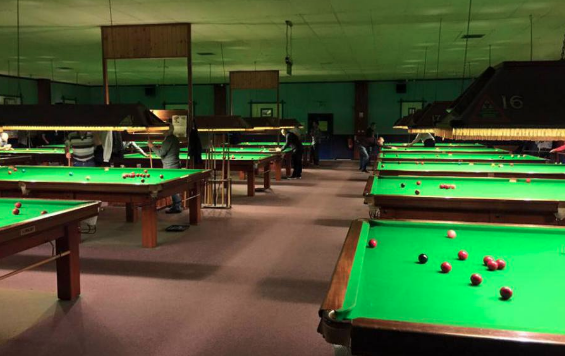
Though the atmosphere towards women has become far more accepting in snooker, this does not mean sexism in snooker has been completely eliminated. For some, snooker is still seen in some ways as a man’s game where women are overlooked in favour of their male counterparts. In the amateur game, there are still some sexual comments from people in everyday life that make ladies feel intimidated from going near the areas they feel intimidated in the most. Some include snooker halls. The ‘all-boys club’ mentality still lingers, where “bad language, offensive jokes, and racism are rarely if ever challenged…bad behaviour is often ignored on the basis that the person behaving that way is ‘OK really,”” according to coach David Horrix. [6]
It's rare and when they do they are stared at at best, often get sexist comments when they bend over the table … you get the picture.
— Monique (@MoniqueLimbos) October 11, 2017
We can take this all the way back the 1970s as an example. A dispute at Wakefield City Workingmen’s Club in 1978 led to a national campaign for equal membership rights for women in social clubs. Sheila Capstick had been a regular snooker player at the club before a ban was instituted on women playing snooker by a male-only committee. Her protest A Woman’s Right to Cues developed into a nationwide campaign for equal rights called the ERICCA – Equal Rights in Clubs Campaign for Action. In April 2007, after the resolution had been consistently rejected annually by the Club and Institute Union (a federation of over a thousand clubs in the UK), it was accepted to grant equal membership rights for women. [7] Bear in mind this took 29 BLOODY YEARS for this to happen, which is absolutely ludicrous.
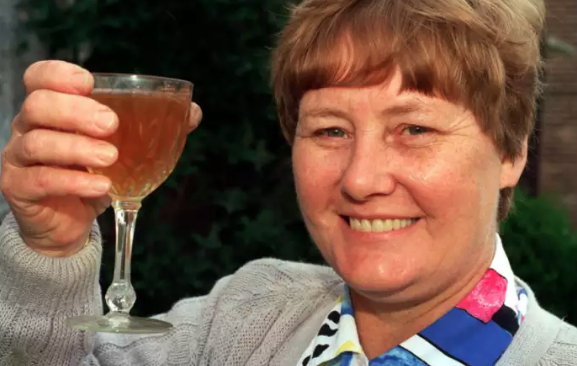
Among many that have experienced sexism in snooker are those who are professionals today. During that time, future female snooker players were learning the trade. Reanne Evans told her story where she was told she wasn’t even allowed to watch her brother play snooker at a club when she was a teenager because she’s a woman. [8] In 2006, then geography student Suzie Opacic was banned by the Netley Club from competing against them in a snooker fixture because of her gender, despite being a junior champion. [9]
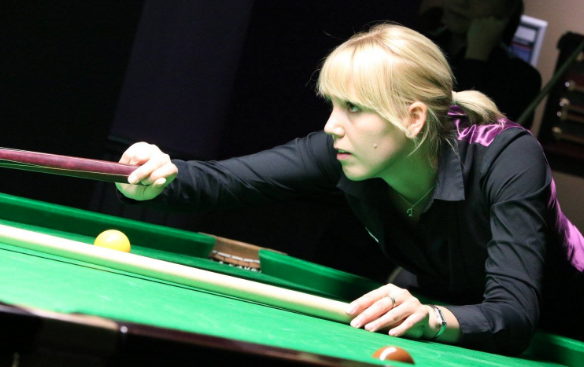
You would think all of this has died down. The most recent article I can find this happening was at the Willerby & Kirk Ella Social Club, where a male player was told by the Director that his wife and daughter, who were watching him play in a snooker final at the club, had to leave because women are not allowed in the establishment during weekdays. [10] With baffling sexism such as this, it is no wonder women don’t feel confident walk into places like these, let alone playing the sport that houses them. In some areas, female bartenders aren’t even allowed to collect empty glasses from the snooker room! [11] Is there any female representation in these committees at all? This I honestly do not know.
What is worse is how this affects the future generation of this game. The worse the chauvinism is in snooker, the fewer women would want to compete as a professional snooker player and thus, sponsorship will be least likely to come. Then fewer women would want to even play snooker in clubs to learn their craft against better players because of the whiff of arrogant superiority and restrictions placed upon them. Then fewer girls would consider even attempting to try snooker at all. It’s a dangerous chain.
Can Women Compete With Men?
Oh goodness.
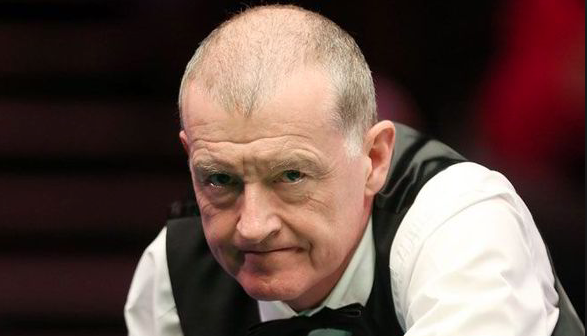
I feel I should need to have a lovely, little subheading for this. In short, Steve Davis said that he couldn’t imagine seeing women competing in the televised stages in World Snooker Championship. He also claims that men are better at snooker because they have a tendency to focus on ‘irrelevant’ obsessions in life. Much like what I’m doing now. He argues that are so single-minded that men can focus on one thing to try and perfect it time and time again. [12] So it’s this a reasonable or an offensive comment?
It’s a tad weird seeing snooker be on the front page or plastered on something that isn’t about someone winning a Triple Crown event or the trivial, ground-breaking news that Ronnie O’Sullivan decided to wear a pair of green shoes on a Tuesday afternoon. But the Steve Davis article certainly drew in some critics. On one hand, Steve Davis’s opinions are incredibly old-fashioned and simplistic. Lady Grey-Thompson said that it is true to some extent, but the reasons run deeper towards grassroots and snooker’s reputation as a male sport. In terms of single-mindedness, she cities Paula Radcliffe as a stellar example as someone who has plenty of things to focus on, such as childcare, but ended up being one of the greats in British athletics history, so that shouldn’t be a consequence to not competing at the top level. [13] Even talking about snooker, Reanne Evans won one of her world titles when seven-months pregnant! Other reasons include from Ruth Holdaway, head of the Women’s Sport and Fitness Foundation:
“Comments such as Steve Davis’s are extremely unhelpful and serve only to engender a continued sense that snooker remains behind closed doors for women and girls.” [14]
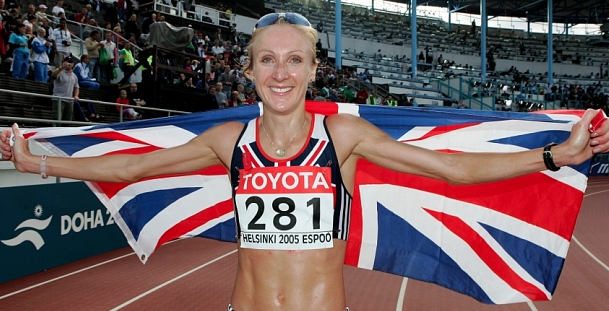
On the other hand, some say it a jokey, self-depreciating remark that has not meant any harm, at least that is the opinion of Victoria Coren-Mitchell. [13] Even World No. 3 Maria Catalano completely agrees with Davis, as she says men and women mentally wired differently because, in her opinion, men are more single-minded and therefore can concentrate on the game more. [14] I say it is nothing more than that, especially since women’s snooker has a very long way to go, despite how rapidly it has progressed over the past couple of years. I don’t believe Steve Davis didn’t realise the gravitas in what he was saying. You could argue – he is one of the greats of the game – surely he would know better? This goes all the way back to whether snooker is genuinely a better sport for men in comparison to women. Are men technically better than women? Is it a strength game or is it, as 3-time Women’s World Champion Ng On Yee claims, simply a mind game? [15]
Personally, men are better at snooker for one very simple reason – experience. The men’s tour has been running for decades and because of this, they have practiced until they are blue in the face as they have plenty of opportunities to be better and achieve success in events on a regular basis. Women may lack the cue power but that isn’t the be all that ends all in snooker. If you watched the Women’s World Championship Final last year you saw how good the safety play was. We have seen Reanne Evans beating Robin Hull 10-8 and Thepchaiya Un-Nooh and she claimed in one interview that she was told she hit the ball with her left-hand better than Ronnie O’Sullivan himself! [4]
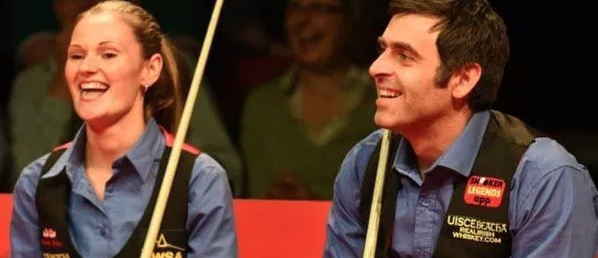
Ending
Hopefully, I brought some knowledge to the debate. I don’t pretend that I have no clue first-hand about sexism in the sport, mainly because I am not a woman nor trying to be a sportsman. The best thing at least I can do is to document and show awareness of it. More importantly, though it discrimination seems to have lessened there are still reports of ladies being turned away by clubs and the pay gap between men and women is astronomical. Back in 2009, Monique wrote an article about her uncertainty of where the women’s game is going and how terribly the grassroots were supported. The Women’s Circuit has never been in better shape, but there is still a lot of work to be done as what Monique wrote in 2009 is still relevant in some ways. [16]
I might as well end on a personal note that is a weird one for me to grasp. During the noughties, the female participation in snooker was hanging on by a thread because of the lack of sponsorship, finances, events, and players. It is fantastic that snooker is moving with the modern times to involve women in snooker. Here’s a kicker for me: despite the likes of Evans and Opacic being prevented from playing snooker, here they are competing professionally in the past few years – sexist discrimination hasn’t stopped them from achieving their dream. Despite the high-profile case between World Snooker and Michaela Tabb, the number of female referees is increasing year by year.
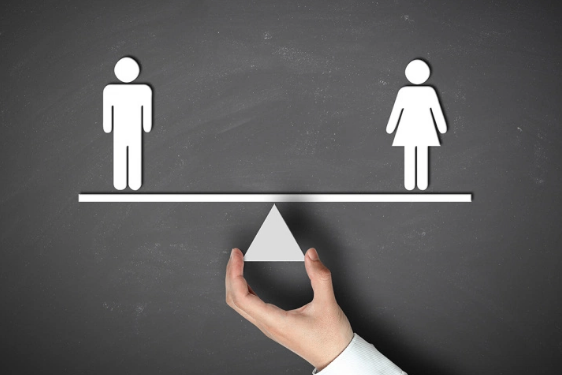
Women are pushing the boundaries regardless and are winning the battles. But when will the war end? We will never know. Yet.
[1] BBC Sport., “Women’s Sport Pioneers: Hostility lit fire under me – Michaela Tabb.” (4th March 2015). Accessed on: http://www.bbc.co.uk/sport/31717737
The Guardian. (5th March 2015). Accessed on: https://www.theguardian.com/sport/2015/mar/05/reanne-evans-gender-gap-world-snooker-championship
Complete Snooker. (4th August 2017). Accessed on: https://www.completesnooker.co.uk/blogs/news/woman-not-allowed-into-the-snooker-room
[12] Rigby, C., “World Snooker: Steve Davis says women will never match top men.” BBC. (2nd May 2014). Accessed: http://www.bbc.co.uk/sport/snooker/27253279
https://www.hongkongfp.com/2018/03/17/snooker-world-champion-hongkonger-ng-yee-aims-change-image-male-dominated-game/
This is the fourth article in the “Sisters Are Doin’ It For Themselves” series. The published articles so far are:
THE REFEREES: https://clusterofredssnookerblog.wordpress.com/2018/01/25/sisters-are-doin-it-for-themselves-the-referees/
THE PLAYERS: https://clusterofredssnookerblog.wordpress.com/2018/02/12/sisters-are-doin-it-for-themselves-top-female-players/
THE CALENDAR: https://clusterofredssnookerblog.wordpress.com/2018/03/08/sisters-are-doin-it-for-themselves-expanding-the-womens-circuit/
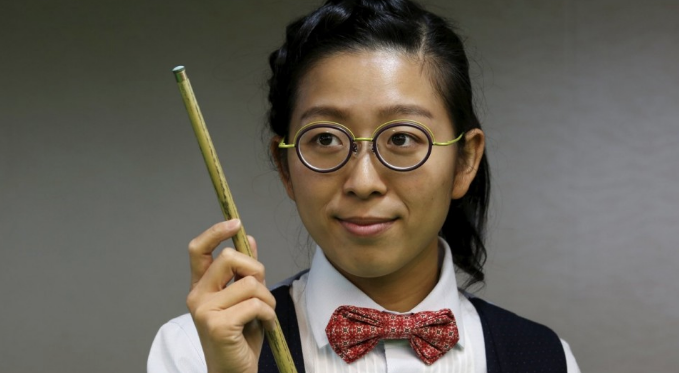





1 thought on “SISTERS ARE DOIN’ IT FOR THEMSELVES: Sexism in Snooker”
Comments are closed.